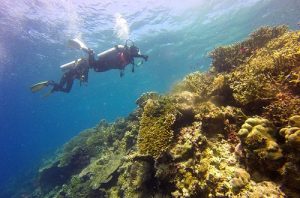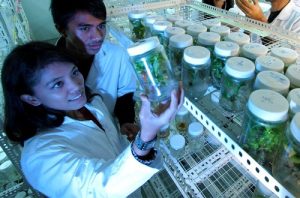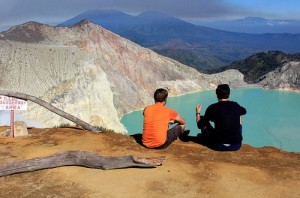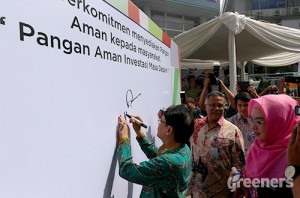
News in English


Indonesia succeeded in pushing forward sustainable coastal reef management to be included in the Sustainable Development Goals (SDGs) agenda at UN Environment Assembly (UNEA-2), held on May 23-27, in Nairobi, Kenya.

Mount Rinjani National Park is one step closer to be listed as world’s geopark for its biodiversity, geology and cultural richness.

Ministry of Environment and Forestry announced 25 priority protected species, said head of forestry and environmental engineering at the ministry, Indra Eksploitasia, in Jakarta on Saturday (28/5).

Indonesian government is drafting Presidential Regulation (Perpres) on Sustainable Development Goals (SDGs), said a senior official in Jakarta on Wednesday (26/5).

A new interactive map revealed that lead exposure cost reach to US$ 37.8 billion per year in Indonesia. The cost is exceeding the country’s development aid which amount to US$ 150 million or two trillion rupiah per year as stated in 2016 State Budget of Ministry of Finance.


Lack of protection for biodiversity in Indonesia has led to theft or local genetic resources for foreign interest dubbed as biopiracy.

A new study found that more than 50 percent of young people from farming family did not want to be farmers.

After Ministry of Environment and Forestry signed an agreement with Ministry of Tourism on Accelerating National Parks and Nature Tourism Parks Development, Indonesia government applies four main strategies to attract tourists.

Ministry of Marine Affairs and Fisheries said whale shark is allowed to be manage as part of tourism attraction in accordance with conservation paradigm, which aims to protect, conserve, and manage sustainably.

After 15 years, Indonesia is the first nation to receive FLEGT (Forest Law Enforcement, Governance, and Trade) license applies to all wood products exported to European Union.

Based on Global Food Security Index 2015 published by The Economist Intelligence Unit, Indonesia’s food quality and security ranked 74 out of 109 countries or 6th of 8 ASEAN nations.

A recent survey conducted by Sapu Gunung Indonesia Community, Ministry of Environment and Forestry, and nature lover students revealed nearly 500 tons of garbage produced by at least 150,000 climbers in ten mountains per year.

Amid increasing development for renewable energy and abandoning fossil fuel in US, India, China, and Germany, instead, Indonesia announced coal as primary energy in the country.














































